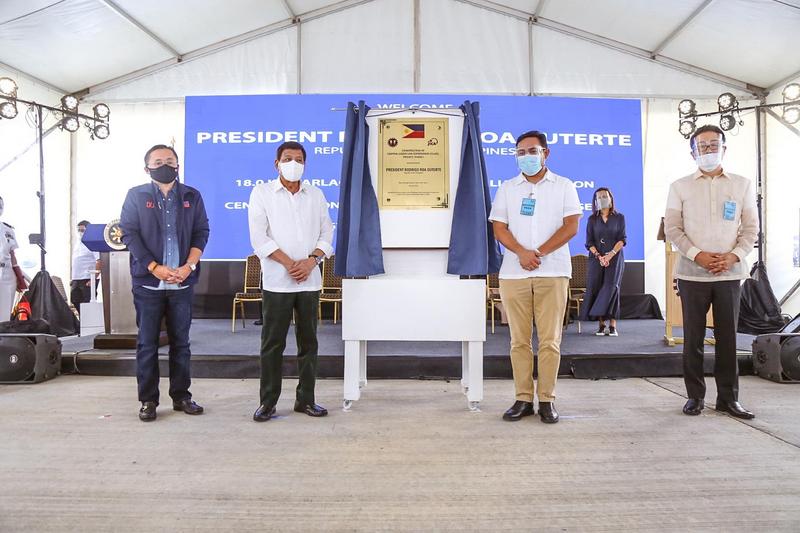Photo Credit: Department of Public Works and Highways
Motorists will now be able to use the first 18-kilometer portion of the Central Luzon Link Expressway (CLLEX) from SCTEX/TPLEX connection in Tarlac City up to the intersection of Aliaga-Guimba Road in Aliaga, Nueva Ecija.
President Rodrigo Duterte, Department of Public Works and Highways (DPWH) Secretary Mark Villar, Senator Bong Go, and Japanese Ambassador to the Philippines Kazuhiko Koshikawa led on Thursday the inauguration ceremony of the four lanes toll-free expressway project connecting the provinces of Tarlac and Nueva Ecija.
The initial part of CLLEX that will be opened are the following sections covered by three contract packages: 4.10 kilometer Tarlac Section, 6.40 kilometer Rio Chico River Bridge Section including the 1.5 kilometer Rio Chico Viaduct, and Aliaga Section with up and down ramps at Guimba-Aliaga Road.
This new highway project was implemented by DPWH Unified Project Management Office (UPMO) led by Undersecretary Emil Sadain and Project Director Benjamin Bautista of UPMO Roads Management Cluster 1 (Bilateral) who have worked double-time to deliver the completion of this project.

CLLEX is among the key infrastructure projects with funding assistance from the Government of Japan thru the Japan International Cooperation Agency (JICA) in support of the Build, Build, Build program.
The entire 30-kilometer expressway project is expected to shorten the usual travel time of 70 minutes between Tarlac City and Cabanatuan City to just 20 minutes.
More than just scenic views experienced while you drive and visit the stunning places in Central Luzon, this new highway will help ensure the Philippines’ sustainability and development by addressing barriers in distance and mobility.
The Build, Build, Build program continues to deliver its promise of creating infrastructure that improves the lives of Filipinos in the face of the Covid-19 pandemic and other challenges.
While Build, Build, Build continued to make progress, it is also setting up the foundation in terms of infrastructure for the next generation.
Article Courtesy of The Department of Public Works and Highways










